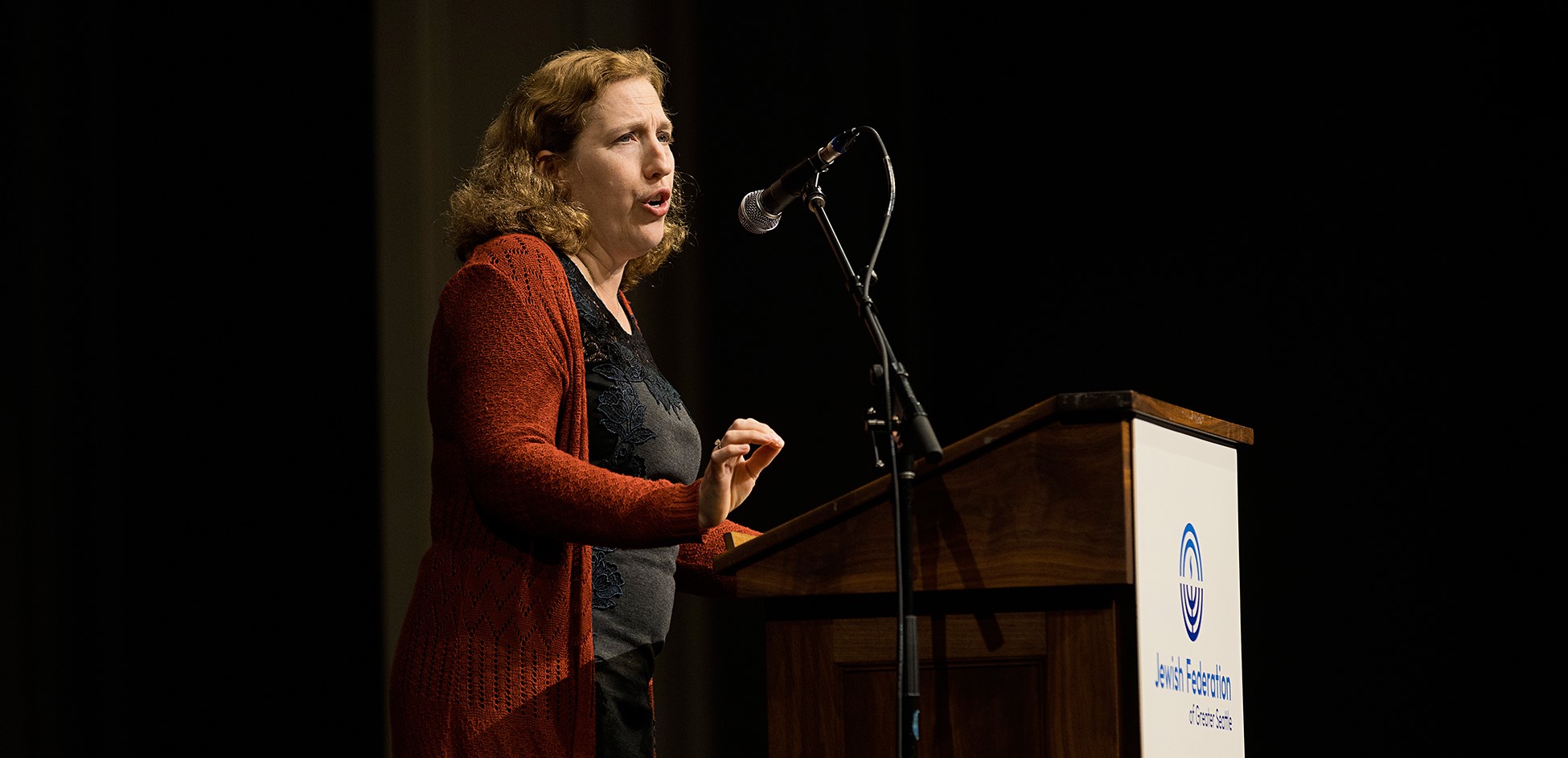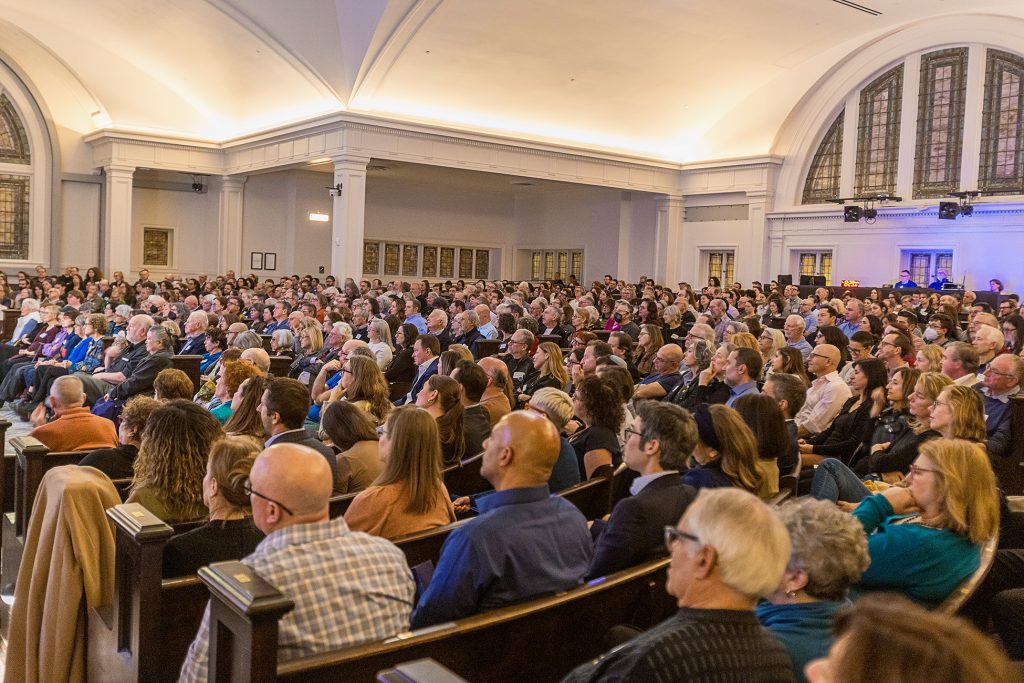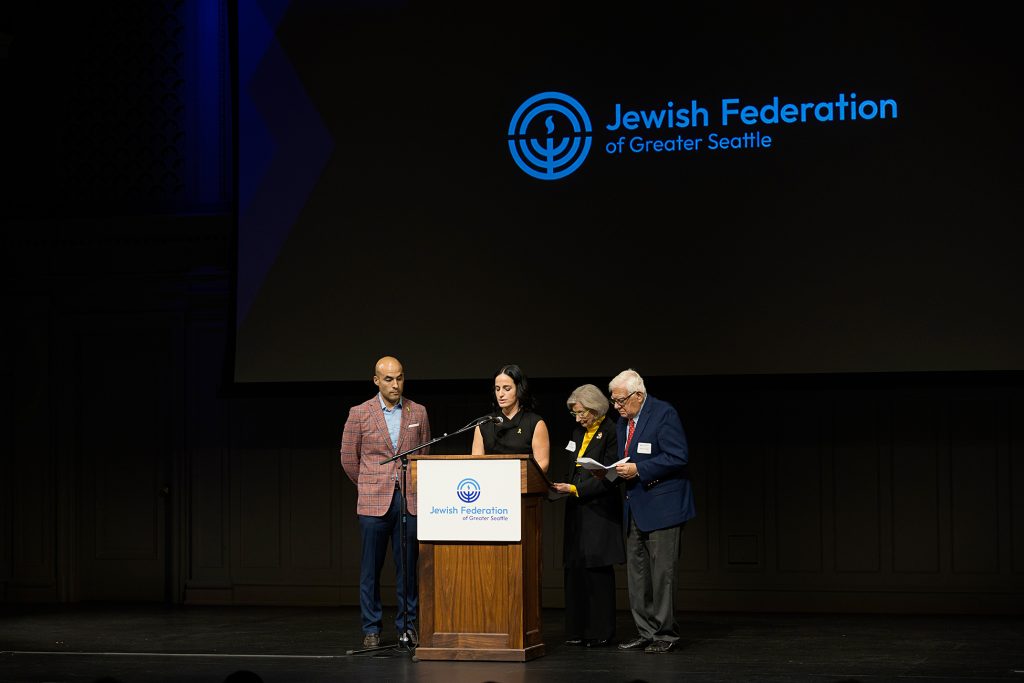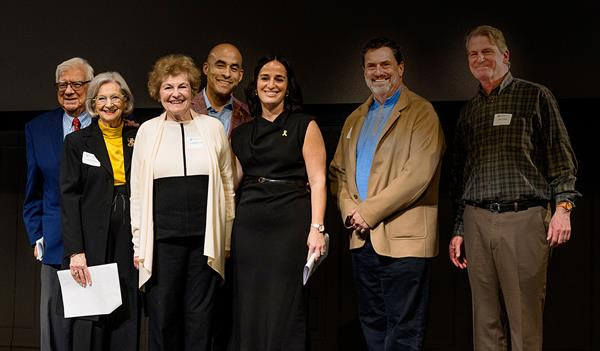Dara Horn Delivers Powerful Keynote at Federation’s Fall Fundraiser

Over 700 people gathered last week for the Jewish Federation of Greater Seattle’s Fall Fundraiser, where renowned author Dara Horn delivered a compelling keynote address on antisemitism and Jewish identity, captivating an audience united in reflection amid rising global challenges. Against the backdrop of a year marked by incidents of hate and violence targeting Jewish communities, the event provided a communal evening focused on unity, resilience, and action.
Horn, drawing on insights from her 2021 bestseller People Love Dead Jews, examined how Jewish identity has been misrepresented and marginalized over centuries, often due to pervasive societal fears. “Societies have used Judaism as a stand-in for whatever they regarded as their era’s greatest evil,” she remarked, eliciting nods from the audience. She emphasized the persistence of antisemitism as a “conspiracy theory” that has forced Jewish communities into defensive positions. “This has actually forced Jews into the defensive pose of having to constantly prove that they are not evil,” she explained.
With a blend of historical perspective and humor, Horn described antisemitism as an adaptable prejudice that shifts to suit each era’s anxieties. “If it’s a capitalist society, Jews are communists. If it’s a communist society, Jews are capitalists,” she noted, encapsulating centuries of contradictory accusations. Horn’s 45-minute address struck a balance between resolve and humor, themes that echoed the words of Federation leaders throughout the evening’s program.


Event co-chairs Stephanie and David Schujman each shared reflections on how recent events have affected the Jewish community locally and beyond. “The last year has brought Jewish communities closer together,” Stephanie observed. “It’s powerful to be part of this collective.” David, echoing this message, acknowledged the “new reality” facing Jewish communities globally. “The impact of that day continues to reverberate through our community, affecting our schools, our universities, our synagogues, and the way we engage with the world,” he said.
Horn’s address was frequently lightened by her wit, drawing laughter from the audience with her sharp insights into difficult truths. Commenting on the dismissal of Jewish identity by anti-Israel protestors on college campuses, she quipped, “First of all, that is literally the definition of prejudice. Did you sleep through middle school, and if you did, how did you make it to Harvard?”
Closing her remarks on an empowering note, she added, “People have been trying this for thousands of years, and it has yet to succeed.”

The evening’s program also featured the launch of the Francine R. Loeb Leadership Institute, made possible by a transformational seven-figure gift from the Loeb family. Named in honor of longtime community leader Frankie Loeb, the Institute will support leadership training for emerging Jewish leaders across Puget Sound, equipping them to navigate the challenges facing Jewish communities today.
Federation President & CEO Solly Kane summed up the evening with a message of solidarity during his speech, underscoring the Federation’s commitment to addressing pressing challenges while fostering a stronger Jewish Puget Sound. “We may not all speak the same language, but we strive to better understand each other and serve as a stronger, more unified community,” he stated.
As the event drew to a close, the community’s collective commitment was clear. With their support, attendees contributed to supporting Jewish life in Greater Seattle, helping build a more resilient community for generations to come.


